The Amazing Gugija-cha (Korean Roasted Goji-berry Tea)!
So the next Korean herbal tea series post is about gugija-cha! Gugija is wolf berries or goji berries. See the orangish-pink color of gugija-cha? It’s so pretty!
I know that gugija (goji berries) have become very popular in the west recently (I’ve seen Dr. Oz talk about how he loves goji berries on his show), but gugija has been a very famous cure-all medicine in Korean medicine for centuries as well.
I always get a kick out of how these folktales are all so dramatic! In this old Korean folktale, a famous scholar was very sick during his youth. When he was older, his friend introduced him to gugija and he started having gugija-cha everyday. His health improved immensely and he started aging backwards! His white hair disappeared, his eyesight came back, his wrinkles started to disappear and his energy level was better than ever! As you can see from this folktale, gugija is considered a a very powerful herb, it is popular and commonly used in Korean medicine and cuisine.
Gugija is said to have a slightly cold quality, has no toxins and has a sweet taste to it. Gugija-cha is known to be a very good source of minerals and vitamins, helping to fight fatigue, diabetes, back pain and malnutrition. Korean medicine also uses it to help with good eyesight, beautiful complexion, and lung and kidney health, as well as men’s virility. They even say that if you wash your hair in gugija-cha, it can help prevent hair loss!

Source: Wikipedia
So this is what a gugija plant looks like – it has very pretty purple flowers. Koreans use the plant’s leaves, berries, stems and roots for medicinal purposes. Besides making cha with the berries, Koreans also make wine and use the leaves for namul dishes.
And the picture we have below shows the dry roasted gugija on the upper left – the dark red berries. You’ll be able to find these dry roasted gugija berries in Korean grocery stores!

A closer look at gugija berries, they are dried and roasted!
Gugija-cha is not as easy to drink as Oksoosoo-cha. It has a much stronger taste. I would describe it as, well, it tastes like dried berry tea! There’s a hint of sweetness and a hint of bitterness too. Bill says that it’s sort of like a cranberry tea without the tartness. I think that is why Koreans put in honey or sugar or other sweeteners to enhance the flavor. But I think it tastes just fine without it, especially if you’re drinking it to be healthy!
Just drop a handful of gugija in a pot full of water and boil it over medium heat for 5-10 minutes so the warm and beautiful orangish-pink color comes out. You can experiment with strength. Koreans have it strong for afternoon tea but then also brew it lightly to drink as a water substitute. The key point is to drink it everyday to really get the benefits! Another healthy, wonderful tea for your winter day! 🙂
Gugija-cha (Korean Roasted Goji-berry Tea) Recipe!
Ingredients:
1/2 handful of dry roasted Gugija (use more or less according to how strong you like it)
A small pot full of water
sweetener to taste (optional)
Directions:
1. Add a handful of gugija into your pot full of water.
2. Bring it to boil and put it on medium heat for 5-10 minutes. You want a nice warm orangish-pink color.
3. Remove the gugija berries and add a sweetener if you’d like.
4. You can enjoy it as warm tea or you can also cool it and store it in the fridge, enjoying it cold during the summer (I like to make it less strong when I drink it cold). Enjoy!
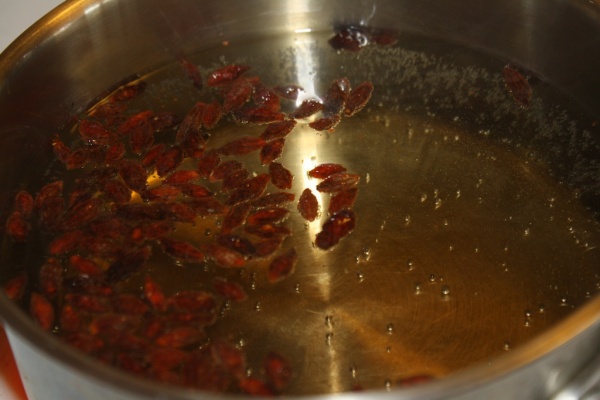
Bring water to boil and then reduce the heat to medium!
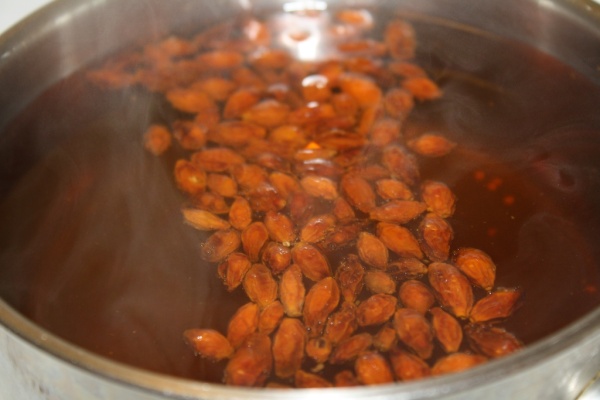
The water begins to get that warm beautiful color as the cha is brewed.
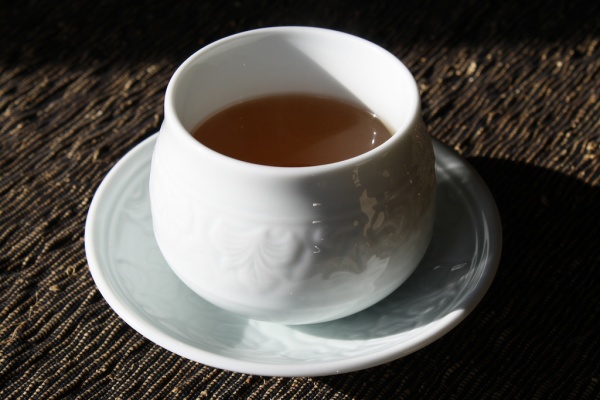
Enjoy your healthy gugija-cha on a cold winter day to warm you up, it’ll make you feel better! 🙂
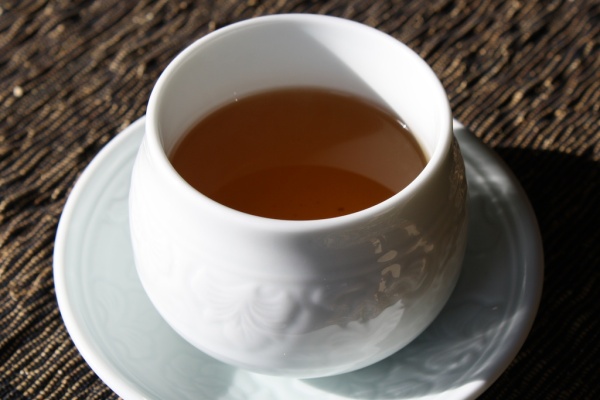
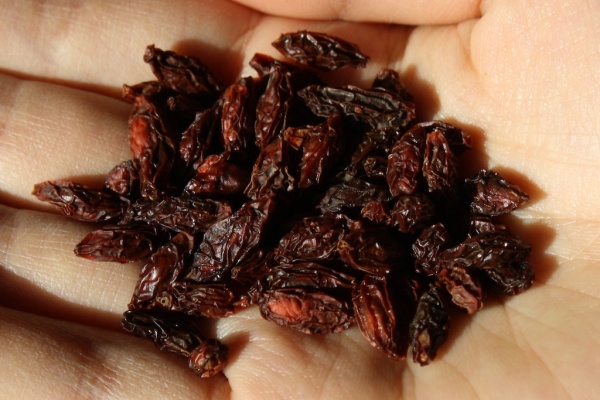
This looks nice. 🙂 I have some dried goji berries at home – do you think I could roast them to make gugija cha?
Hi, Tor! Thanks for visiting. I don’t know if that would work… I think they roast it while they are still fresh to dry it out. You could give it a try though, if you try – please let us know how it turned out! 🙂
hie,i am from Malaysia. could you recommend to me where can i get this goji berry in my country?i want it’s origin country to be korea instead of china.
Hi Kenny! I would try the Korean grocery stores. Many of them would carry the dried goji berries. I hope you find what you need! 😉
When I initially commented I clicked the “Notify me when new comments are added” checkbox and now each time a comment is added
I get four e-mails with the same comment. Is there any way you can remove people from that service?
Bless you!
Sorry, I’m not aware of any way on our side for us to unsubscribe you! Maybe mark it as spam? Or try logging into WordPress.com and seeing if there is anywhere on the dashboard where you can unsubscribe?
Gugija-cha is also very good for removing liver fat. They also sell powder version.
Thanks for the note, Karen!